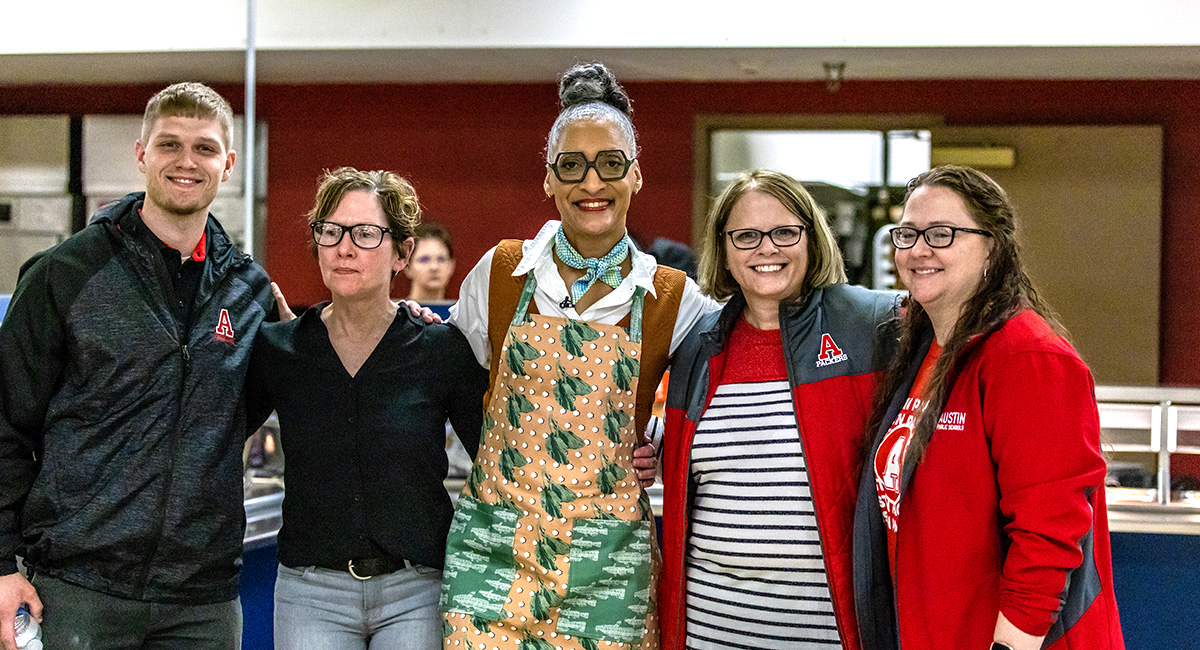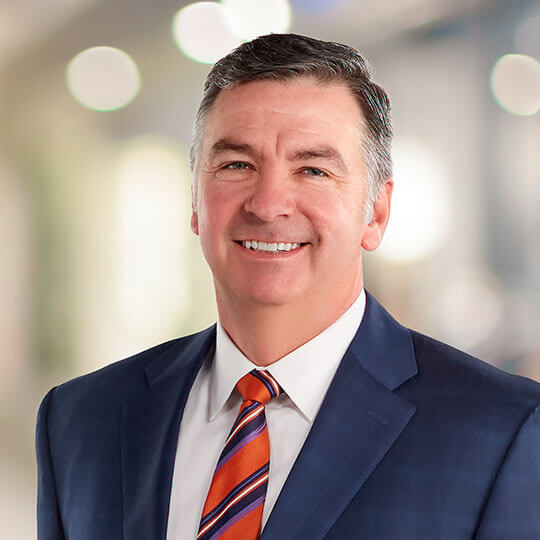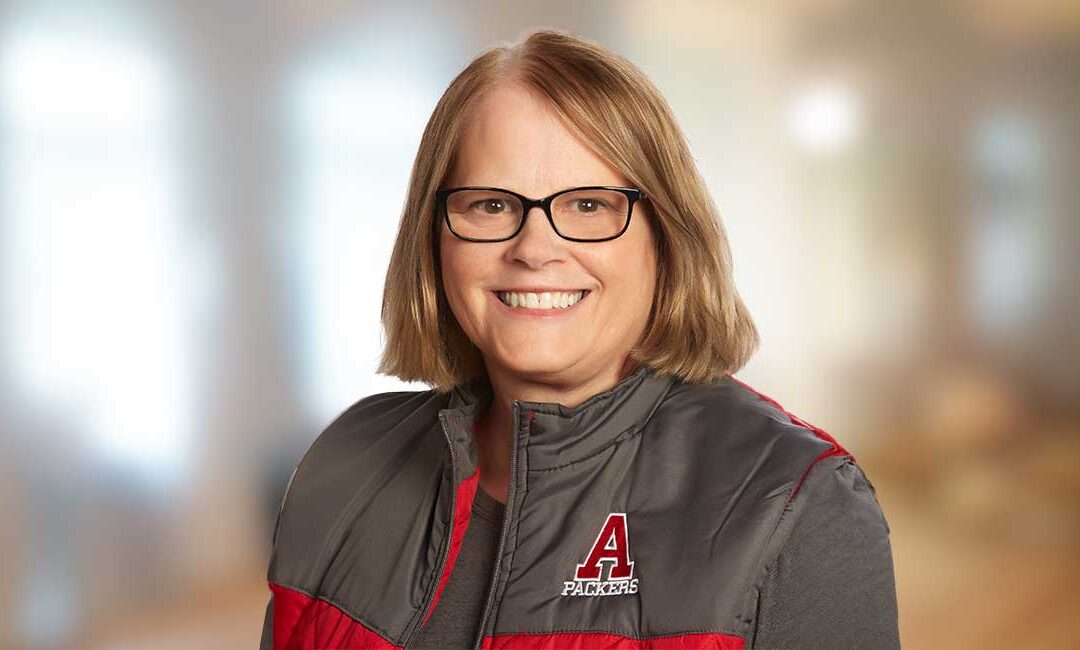By Ethan Watters
Mary Weikum has a lifetime of knowledge about food insecurity.
Few people have a better understanding of food insecurity in Austin, Minnesota, than Mary Weikum. As the former director of Food Nutrition for the Austin Public Schools, she has seen firsthand the difference good nutrition can make in students’ achievement and mental health. She has witnessed how the proliferation of fast-food restaurants has changed the palates of young people, making it harder to convince them to eat healthy food. She also knows that the speed of modern life and the time constraints of dual-income or single-parent households have limited the preparation of home-cooked family meals. Over her career, Weikum saw the percentage of students eligible for free or reduced-cost lunch programs rise from 30% of the school population to nearly 70%. She knows, better than most, that changing the course of these economic and cultural currents can be slow and sometimes frustrating.

“I’m someone who likes to get things done today, which is not always possible. Even when you feel like you’re not progressing, you must keep trying. Tomorrow you might make a breakthrough.”
Mary Weikum, Former director of Food Nutrition for the Austin Public Schools
Mary has never given up. She has worked tirelessly to make a difference even as the trends became more troubling. In 2007, she began the Summer Lunch Program in Austin, a federally funded program that supports free meals for children of all ages. She also implemented free breakfasts for all students regardless of eligibility. She pioneered programs to get vegetable and salad bars in elementary schools. In 2018, she created The Lunch Tray Project, which helped families who did not qualify for lunch benefits. She was a passionate advocate for the landmark legislation passed in 2023 that guaranteed free lunch and breakfast to all students in the state.
For Mary, providing food for children is not only critical for their health but also a way to communicate emotional support and caring. She and her staff made a point of welcoming students when they came into school cafeterias to make sure they knew they were valued. Her efforts made an impression on students, co-workers and parents alike. “She always kept a positive attitude,” said Jane Arhart, who worked closely with Weikum for nearly a decade. She never got discouraged. Her concern was always about kids.”

Mary Weikum joins Celebrity Chef Carla Hall and school staff at an Austin Public Schools backpack-packing event, co-hosted by United Way of Mower County and Hometown Food Security Project.
Now retired from Austin Public Schools, she has brought her experience and insights to the Hometown Food Security Project. She continues to expand her knowledge of food insecurity and the populations in need. Recently, she has volunteered to cook meals at the Salvation Army and has also begun to volunteer to bring cooked meals to the elderly. Through these experiences, she knows that no single solution for food insecurity will work across populations.

“Mary is one of those people who leads by example. Talking with Mary is inspiring and a lesson in what community building is all about.”
Jim Snee, president and CEO of Hormel Foods
Hormel Foods president and CEO Jim Snee along with Hometown Food Security Coalition member Tammy Snee recently visited the Austin High School as they were embarking on the project’s work. They toured the dining facility with Weikum and met the kitchen staff along with Tanner Lange, the new head of Food and Nutrition, and announced the donation of $10,000 and two mobile food carts to support the school’s morning meal service. With Hormel Foods’ contribution, the school has been able to provide hundreds of additional meals to students each week.
Despite the complex causes of food insecurity, Weikum feels certain that Austin has the community goodwill to meet the challenge. She can see that compassion when teens from the high school and other members of the community arrive at the Hometown Food Security every week to help create hundreds of weekend food bags for the kids in need. She continues to work closely with Lange and the school district staff to ensure that families make the most of the support available, including spreading awareness of the Summer-EBT benefits that provide eligible families with funds for food over the summer.
“I’m optimistic because Austin is a community that will always help,” Mary said. “There is so much goodwill. I’ve seen it from the volunteers and from the people who receive services who want to give back as well. Once you’ve witnessed that, you can’t be discouraged.”

